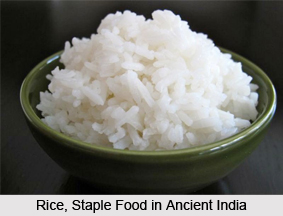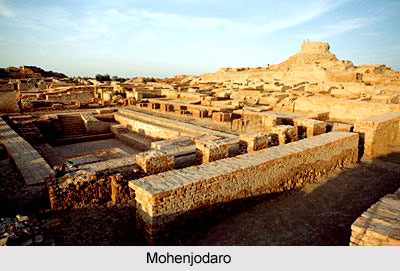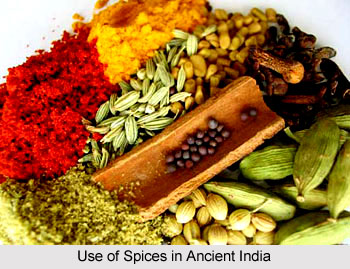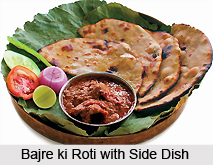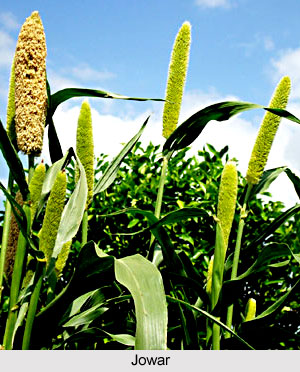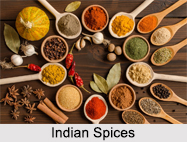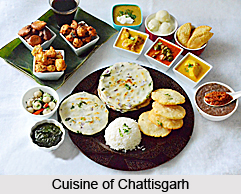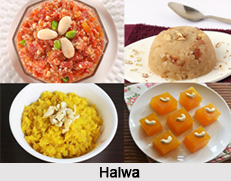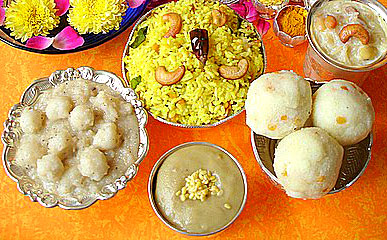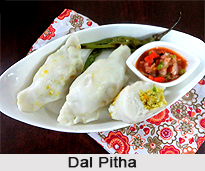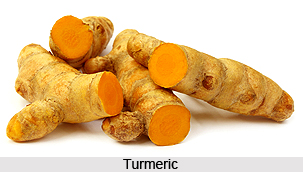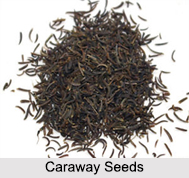 Caraway seed is a very popular spice in India. It is one of the herbs renowned for its excellence of its aromatic dried seeds. These seeds are used as a condiment and an aid to digestion. The dried fruit or seed is brown in colour, has a pleasant aromatic flavour, warm and somewhat of sharp taste. Caraway seed aroma is just a little bitter than cumin seeds.
Caraway seed is a very popular spice in India. It is one of the herbs renowned for its excellence of its aromatic dried seeds. These seeds are used as a condiment and an aid to digestion. The dried fruit or seed is brown in colour, has a pleasant aromatic flavour, warm and somewhat of sharp taste. Caraway seed aroma is just a little bitter than cumin seeds.
Etymology of Caraway Seeds
Caraway is Persian cumin which possesses the botanical name "Carum carvi Linn" and belongs to the family of "Umbellifereae". This herb is commonly found in the regions of Himachal Pradesh in India. The plant is known by different names in different languages all over the country. It is popularly known as "Shah Jeera" in Hindi, "Sheema Jilkara" in Telugu, "Shimayishiragam" in Tamil, "Kari Jeerige" in Kannada, "Shaahjeeru" in Gujarati, "Shahaajire" in Marathi and "Shajire" in Bengali.
Properties of Caraway Seeds
Caraway seed is an excellent source of minerals like iron, copper, calcium, potassium, manganese, selenium, zinc and magnesium. The seeds also contain many vital vitamins like A, E, C and B-complex. Caraway seeds are also a rich source of dietary fibre.
Use of Caraway Seeds in Cuisine
Caraway is widely used as a spice for culinary purposes and for flavouring bread, biscuits, cakes and cheese. Caraway seeds feature warm, sweet, and slightly peppery aroma when squeezed between index and thumb fingers. They are used extensively in European and Mediterranean cooking.
To keep their fragrance and flavour intact; caraway seeds are roasted gently under low flame and are ground just before using them in a recipe. A number of recipes for using caraway seeds in cooking include "naan bread", "Caraway Biscuits" and many more.
Usage of Caraway Seeds in Medicine
Caraway tea and infusions are best for treating intestinal parasites, urinary tract infections, coughs, colds, bronchitis and fever. They also help in boosting immunity. They are known to increase appetite in patients undergoing chemotherapy and are also useful for improving lactation in new mothers. Caraway oil is also used to help people cough up phlegm, improve control of urination, kill bacteria in the body and relieve constipation.

